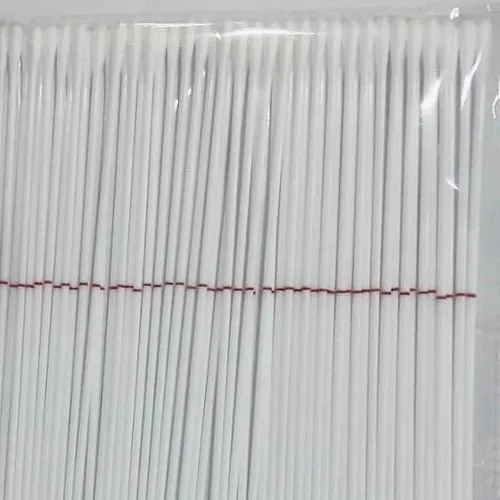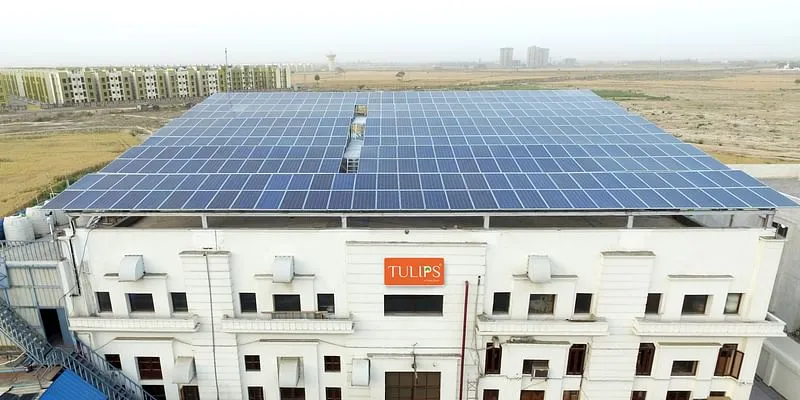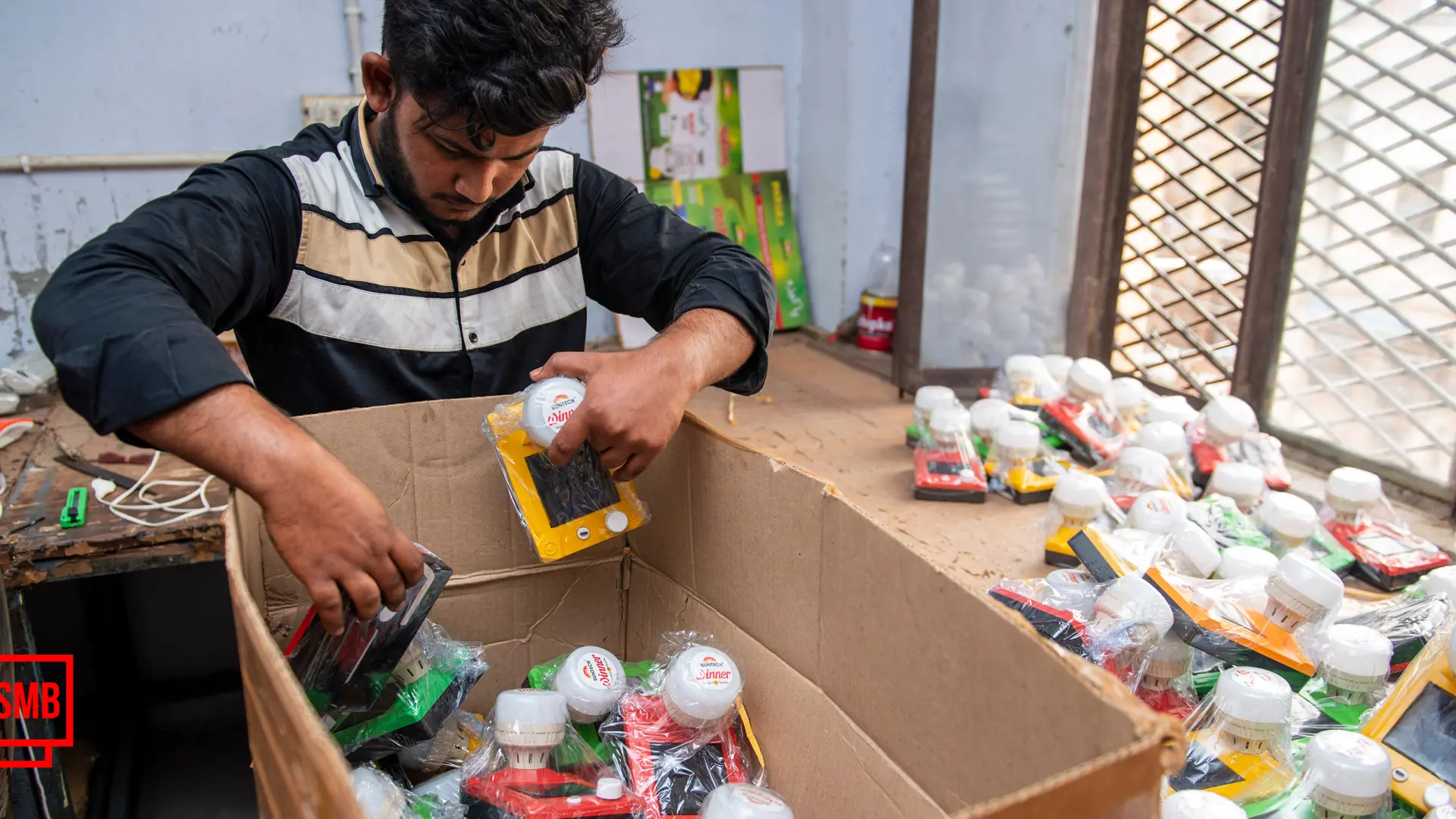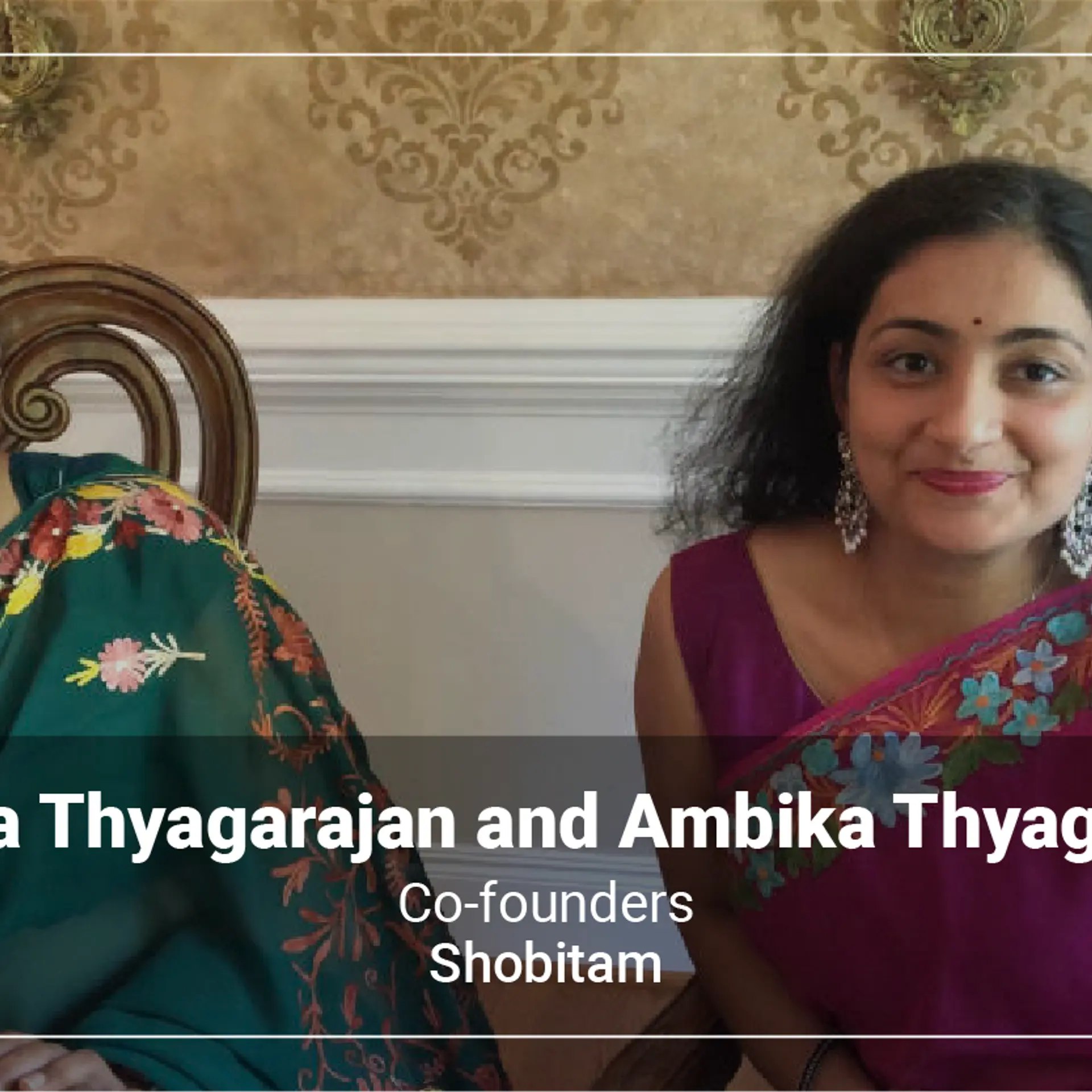Making 5 million polyester swabs a week for COVID-19 tests, this Delhi business says it can alone meet India’s requirements
In just ten days, cotton hygiene products manufacturer Suparshva Swabs converted its cotton processing lines to produce polyester-spun swabs for COVID-19 testing. The Delhi-based family business claims it can take its production capacity up to 30 million swabs a week.
For the last few weeks, India has been detecting thousands of positive COVID-19 cases each day. Enhanced testing has allowed the country to detect a higher number of new infections and expanded its testing capacity.
Initially, COVID-19 testing had been slow due to the lack of testing kits, high costs, logistical difficulties, and more. Now, the pace is picking up as laboratories and healthcare firms are coming together to battle the virus.
One Indian company that is making a big difference is Delhi-based Suparshva Swabs, which makes personal hygiene products such as cotton buds, cotton balls, and special swabs under the Tulips brand.
Till March 2020, polyester swabs for COVID-19 testing were not manufactured in India. They were imported from China or the US. With global demand for the swabs on the rise, it became more difficult and expensive to source them for domestic use.
To solve this problem, the family business converted its 100 percent cotton processing lines at its Ghaziabad factory to produce polyester-spun swabs on automatic production lines, all in just ten days.
“We are the first Indian company to develop special polyester spun swabs for COVID-19 testing. We started making two million polyester swabs a week and grew it to five million a week towards the end of May,” says Rahul Jain, second-gen entrepreneur and partner at Suparshva Swabs, in an exclusive interview with SMBStory.

Suparshva Swabs second gen entrepreneurs (from left to right) Ajay Jain, Rahul Jain and Rajeev Jain
The Tulips polyester swabs are critical at this juncture in India’s battle against COVID-19 because most infected people are asymptomatic, and a greater number of tests are now needed to arrest the transmission of the virus
Developing the product
In mid-April, the Ministry of Textiles and the Department of Health Research (DHR) approached the company to develop the swabs. Rahul and his company, being one of the largest manufacturers of cotton buds in Asia, took up the challenge.
“We did trials on the main production line and made our factory fully-ready to produce swabs in mass volumes. We did not wait around to develop a prototype for a swab which would need more time for industry implementation,” Rahul says.
Suparshva Swabs also got its polyester swabs validated by the Indian Council of Medical Research (ICMR) and the National Institute of Virology (NIV). The business then began supplying the swabs to leading Viral Transport Media (VTM) manufacturers across the country.
“To meet the national need for COVID-19 tests, we are increasingly ramping up production and reconfiguring our equipment. We already have the largest installed capacity for making cotton buds in Asia. If needed, we can take the COVID-19 polyester swab production to over 30 million units a week,” he adds.
The company claims it can alone cater to the entire nation’s requirements of polyester swabs for COVID-19 testing.

The Tulips polyester swabs
It says its swabs are fully-compliant with ICMR guidelines of being 100 percent synthetic, and feature a bendable shaft with a breakpoint and indicator line. Its swabs can be used both for oral and nasal swab sample collection.
Initial struggles
Suparshva Swabs and Tulips’ large-scale production capabilities are built on a long history of manufacturing and exporting.
The business was started in 1992, later formalised in 1998 as Suparshva Swabs, by the late Brij Mohan Lal Jain and his sons. In those years, the company made wooden toothpicks. A small semi-automatic machine for making cotton buds lay unused in its factory. The founder, sensing a business opportunity to replace imported cotton buds, used the machine to begin making the buds.
“After a few years of struggle, we were able to establish ourselves as a local alternative to imported cotton buds. We built a high production capacity. However, the Indian market size was small. So we looked for markets outside India and began exporting to over 15 countries,” Rahul says.
Suparshva Swabs found the export market tough and unforgiving. Chinese rivals leveraged export subsidies from their government to bring down the price of their products.
“We started processing intermediates in-house, increasing production and reducing logistics costs while trying to improve quality standards simultaneously. We wanted to present a strong reason for customers to choose us. We cut our overheads and kept ourselves very lean in order to survive on wafer-thin margins,” he says.
Success story
On the back of its lean operating model, the company grew into a large-scale cotton hygiene products manufacturer. Rahul believes the frugal approach was instrumental in helping the business expand.
“We never really got into projects that needed heavy investments in one go. We built the business brick-by-brick. This helped us to not get bogged down by heavy EMIs, which could have shut us down after the 2008 economic crisis,” he says.
Today, Suparshva Swabs and the Tulips brand employs 400 people across its manufacturing and distribution channels.

The Tulips factory in Ghaziabad
Its range of products includes pre-sterilised absorbent cotton rolls, cotton pleats, medical disposables, toothpicks, wet wipes, etc.
“We have complete backward integration, where almost all intermediate raw materials are processed in-house on automated production lines. This makes us one of the lowest-cost manufacturers in the world. This helps us keep our MRPs low,” Rahul says.
The products are sold under the Tulips brand at over 150,000 retail outlets such as chemist shops, grocery stores, kiranas, modern retail supermarkets, and standalone supermarkets. The brand’s products are also available on Amazon, Flipkart, Snapdeal, and Paytm.
The family business now plans to venture into making paper-based hygiene products.
Edited by Kanishk Singh









